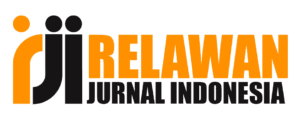Moving Public Opinion by Politicians: Action Study #AyoMoveOn2024 Through Social Media X
Abstract
The use of social media as a channel for political communication has an influence in determining a person's political behavior, so that it can form public opinion among the community. The reason X is called an information disseminator is because most of the trending topic hashtags that are trending on X become headlines. This is due to the power of X as a mouthpiece for conventional media news, so that many people use it, especially politicians. Therefore, it is not surprising that public opinion is easily formed and is often found on social media X. X is a form of social media that allows its users to express their opinions on various topics effectively. The focus of this study is how politicians influence public opinion. This study explores the intensity of conversations on the @fahrihamzah account and issues related to the #AyoMoveOn2024 action on social media. This study uses a qualitative method with the Qualitative Data Analysis (QDA) Miner approach, which helps network, content, and cloud analysis using Nvivo 12 Plus software. The results of this study indicate that being a consistent medium for spreading public opinion campaign actions through the @Fahrihamzah account network through the #AyoMoveOne2024 public opinion campaign with high conversation intensity. In addition, public opinion accompanying the #AyoMoveOn2024 action campaign shows that the Geloraid party made the most mentions with an intensity of 12.70%. Then the most prominent hashtag is #ayomoveon2024, with an intensity of 10.34%. Furthermore, there were 3013 tweets sent by the @Fahrihamzah account in the #AyoMoveOn2024 action, with seven retweets. This study can illustrate how social media X is effective as a means of disseminating information and campaigning for action by X social media users.
References
Araújo, B., & Prior, H. (2021). Framing Political Populism: The Role of Media in Framing the Election of Jair Bolsonaro. Journalism Practice, 15(2), 226–242. https://doi.org/10.1080/17512786.2019.1709881
Bagaskoro, S., Amrozi, I., & Ramadhan, A. R. (2022). Political Sentiment Analysis. Jurnal PolGov, 4(2), 189–230. https://doi.org/10.22146/polgov.v4i2.3615
Baldassarri, D., & Park, B. (2020a). Was there a culture war? Partisan polarization and secular trends in us public opinion. Journal of Politics, 82(3), 809–827. https://doi.org/10.1086/707306
Baldassarri, D., & Park, B. (2020b). Was there a culture war? Partisan polarization and secular trends in us public opinion. Journal of Politics, 82(3), 809–827. https://doi.org/10.1086/707306
Barisione, M., Michailidou, A., & Airoldi, M. (2019). Understanding a digital movement of opinion: the case of #RefugeesWelcome. Information Communication and Society, 22(8), 1145–1164. https://doi.org/10.1080/1369118X.2017.1410204
Bello, B. S., Alhassan, M. A., & Inuwa-Dutse, I. (2023). #EndSARS Protest: Discourse and Mobilisation on Twitter. http://arxiv.org/abs/2301.06176
Busemeyer, M. R., Abrassart, A., & Nezi, R. (2021). Beyond Positive and Negative: New Perspectives on Feedback Effects in Public Opinion on the Welfare State. British Journal of Political Science, 51(1), 137–162. https://doi.org/10.1017/S0007123418000534
Busemeyer, M. R., Garritzmann, J. L., & Neimanns, E. (2020). A Loud but Noisy Signal?: Public Opinion and Education Reform in Western Europe. In A Loud but Noisy Signal?: Public Opinion and Education Reform in Western Europe. books.google.com. https://doi.org/10.1017/9781108777896
Cano-Marin, E., Mora-Cantallops, M., & Sánchez-Alonso, S. (2023). Twitter as a predictive system: A systematic literature review. Journal of Business Research, 157(December). https://doi.org/10.1016/j.jbusres.2022.113561
Chu, J. A., & Recchia, S. (2022). Does Public Opinion Affect the Preferences of Foreign Policy Leaders? Experimental Evidence from the UK Parliament. Journal of Politics, 84(3), 1874–1877. https://doi.org/10.1086/719007
Cramer, K. (2020). Understanding the Role of Racism in Contemporary US Public Opinion. In Annual Review of Political Science (Vol. 23, pp. 153–169). annualreviews.org. https://doi.org/10.1146/annurev-polisci-060418-042842
David, Y. (2022). Public opinion, media and activism: the differentiating role of media use and perceptions of public opinion on political behaviour. Social Movement Studies, 21(3), 334–354. https://doi.org/10.1080/14742837.2021.1875321
Davies, B., Lalot, F., Peitz, L., Heering, M. S., Ozkececi, H., Babaian, J., Davies Hayon, K., Broadwood, J., & Abrams, D. (2021). Changes in political trust in Britain during the COVID-19 pandemic in 2020: integrated public opinion evidence and implications. In Humanities and Social Sciences Communications (Vol. 8, Issue 1). nature.com. https://doi.org/10.1057/s41599-021-00850-6
De Vries, C. E., Hobolt, S. B., & Walter, S. (2021a). Politicizing International Cooperation: The Mass Public, Political Entrepreneurs, and Political Opportunity Structures. International Organization, 75(2), 306–332. https://doi.org/10.1017/S0020818320000491
De Vries, C. E., Hobolt, S. B., & Walter, S. (2021b). Politicizing International Cooperation: The Mass Public, Political Entrepreneurs, and Political Opportunity Structures. International Organization, 75(2), 306–332. https://doi.org/10.1017/S0020818320000491
Donovan, K., Kellstedt, P. M., Key, E. M., & Lebo, M. J. (2020). Motivated reasoning, public opinion, and presidential approval. Political Behavior. https://link.springer.com/article/10.1007/s11109-019-09539-8
Druckman, J. N., & Jacobs, L. R. (2020). Who governs? Presidents, public opinion, and manipulation. degruyter.com. https://www.degruyter.com/document/doi/10.7208/9780226234557/html
Druckman, J. N., Klar, S., Krupnikov, Y., Levendusky, M., & Ryan, J. B. (2021). Affective polarization, local contexts and public opinion in America. Nature Human Behaviour, 5(1), 28–38. https://doi.org/10.1038/s41562-020-01012-5
Edhlund, B. (2019). NVivo 12 Essentials. Lulu.com.
Fraser, N. (2020). Transnationalizing the public sphere: On the legitimacy and efficacy of public opinion in a post-Westphalian world. Habermas and Law, 379–402. https://doi.org/10.4324/9781003074977-24
Frimer, J. A., Aujla, H., Feinberg, M., Skitka, L. J., Aquino, K., Eichstaedt, J. C., & Willer, R. (2022). Incivility Is Rising Among American Politicians on Twitter. Social Psychological and Personality Science. https://doi.org/10.1177/19485506221083811
Haradhan, M. (2018). Qualitative Research Methodology in Social Sciences and Related Subjects. Journal of Economic Development, Environment and People, 7(1), 23–48.
Helberger, N. (2020). The Political Power of Platforms: How Current Attempts to Regulate Misinformation Amplify Opinion Power. Digital Journalism, 8(6), 842–854. https://doi.org/10.1080/21670811.2020.1773888
Kurniawan, C., Pribadi, U., & Iqbal, M. (2023). the Role of E-Governance in Improving Local Governments Performance (Case Study: Sumbawa Regency). Jurnal Ilmiah Peuradeun, 11(3), 1139–1154. https://doi.org/10.26811/peuradeun.v11i3.795
McGregor, S. C. (2019). Social media as public opinion: How journalists use social media to represent public opinion. Journalism, 20(8), 1070–1086. https://doi.org/10.1177/1464884919845458
Nepal, J., & Neupane, M. S. (2020). Role of Nepali Media for Political Transformation and Public Opinion Formation. 21(1), 1–9. http://journal.um-surabaya.ac.id/index.php/JKM/article/view/2203
Norris, R. J., & Mullinix, K. J. (2020). Framing innocence: an experimental test of the effects of wrongful convictions on public opinion. Journal of Experimental Criminology, 16(2), 311–334. https://doi.org/10.1007/s11292-019-09360-7
Park, S., Strover, S., Choi, J., & Schnell, M. (2021). Mind games: A temporal sentiment analysis of the political messages of the Internet Research Agency on Facebook and Twitter. New Media and Society. https://doi.org/10.1177/14614448211014355
Piazza, J. A. (2023). Drivers of Political Violence in the United States. Journal of Public Policy and Marketing, 42(1), 11–14. https://doi.org/10.1177/07439156221133763
Rauh, C., Bes, B. J., & Schoonvelde, M. (2020). Undermining, defusing or defending European integration? Assessing public communication of European executives in times of EU politicisation. European Journal of Political Research, 59(2), 397–423. https://doi.org/10.1111/1475-6765.12350
Reeskens, T., Muis, Q., Sieben, I., Vandecasteele, L., Luijkx, R., & Halman, L. (2021). Stability or change of public opinion and values during the coronavirus crisis? Exploring Dutch longitudinal panel data. European Societies, 23(S1), S153–S171. https://doi.org/10.1080/14616696.2020.1821075
Reny, T. T., & Newman, B. J. (2021). The Opinion-Mobilizing Effect of Social Protest against Police Violence: Evidence from the 2020 George Floyd Protests. American Political Science Review, 1–9. https://doi.org/10.1017/S0003055421000460
Rim, H., Lee, Y. A., & Yoo, S. (2020a). Polarized public opinion responding to corporate social advocacy: Social network analysis of boycotters and advocators. Public Relations Review, 46(2). https://doi.org/10.1016/j.pubrev.2019.101869
Rojas, H., & Valenzuela, S. (2019). A Call to Contextualize Public Opinion-Based Research in Political Communication. Political Communication, 36(4), 652–659. https://doi.org/10.1080/10584609.2019.1670897
Rossolatos, G. (2019). Negative brand meaning co-creation in social media brand communities: A laddering approach using NVivo. Psychology and Marketing, 36(12), 1249–1266. https://doi.org/10.1002/mar.21273
Salahudin, S., Nurmandi, A., & Loilatu, M. J. (2020). How to Design Qualitative Research with NVivo 12 Plus for Local Government Corruption Issues in Indonesia? Jurnal Studi Pemerintahan, 11(3). https://doi.org/10.18196/jgp.113124
Sevenans, J. (2021). How Public Opinion Information Changes Politicians’ Opinions and Behavior. Political Behavior, 43(4), 1801–1823. https://doi.org/10.1007/s11109-021-09715-9
Slothuus, R., & Bisgaard, M. (2021). How Political Parties Shape Public Opinion in the Real World. American Journal of Political Science, 65(4), 896–911. https://doi.org/10.1111/ajps.12550
van Haperen, S., Uitermark, J., & Nicholls, W. (2022). The Swarm versus the Grassroots: places and networks of supporters and opponents of Black Lives Matter on Twitter. Social Movement Studies, 22(2), 171–189. https://doi.org/10.1080/14742837.2022.2031954
Wlezien, C., & Soroka, S. N. (2012). Political Institutions and the Opinion-Policy Link. West European Politics, 35(6), 1407–1432. https://doi.org/10.1080/01402382.2012.713752
Zitri Ilham, Rifaid, Lestanata, Y., & Kurniawan, C. (2024). Navigating digital tourism governance: a case study of branding strategies in the Mandalika special economic zones. OTORITAS : Jurnal Ilmu Pemerintahan, 44(8), 1–5. https://doi.org/10.1088/1751-8113/44/8/085201
Copyright (c) 2025 Journal of Governance and Local Politics (JGLP)

This work is licensed under a Creative Commons Attribution-NonCommercial-NoDerivatives 4.0 International License.










